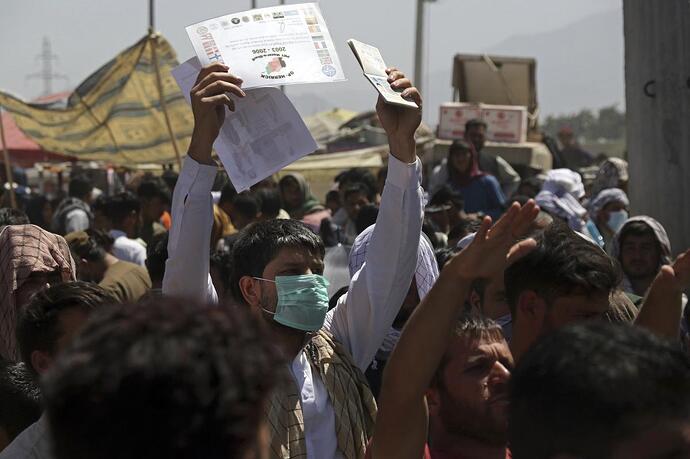Afghanistan, officially known as the Islamic Republic of Afghanistan, is a landlocked country in South Asia. It is bordered by Pakistan to the east and south, Iran to the west, Turkmenistan, Uzbekistan, and Tajikistan to the north. With a population of approximately 38 million people and an area of 652,860 km², Afghanistan is the 39th most populous and the 41st largest country in the world. The capital and largest city of Afghanistan is Kabul.
Afghanistan has a long and complex history. The region has been inhabited by humans since the Paleolithic era, and has been ruled by various kingdoms and empires throughout its history. The region was conquered by Alexander the Great in 330 BC and later fell under the rule of the Hindu Shahi dynasty. Islam was introduced to the region in the 7th century, and the region became part of the Muslim world.
In the 19th century, Afghanistan became a buffer state between the British and Russian Empires, and was never colonized. In 1919, Afghanistan gained independence from Britain and became a monarchy. In 1973, the monarchy was overthrown by a Marxist-Leninist revolution, which led to the establishment of a socialist government. In the 1980s, Afghanistan was invaded by the Soviet Union, which led to a long and brutal war. The war officially ended in 1989, and the Soviet Union withdrew its troops. The socialist government collapsed in 1992, and Afghanistan entered a period of civil war.
In 1996, the Taliban, a Islamist militant group, seized control of Afghanistan and established the Islamic Emirate of Afghanistan. The Taliban’s rule was marked by brutal human rights abuses, particularly against women. In 2001, following the September 11 attacks in the United States, the United States invaded Afghanistan and overthrew the Taliban regime.
Since then, Afghanistan has undergone significant political and social changes. A new constitution was adopted in 2004, which established a presidential system of government. Hamid Karzai was elected as the first president under the new constitution. In 2009, a presidential election was held, and Ashraf Ghani was elected as the new president.
Despite these changes, Afghanistan remains a deeply troubled country. The country is plagued by persistent security issues, including ongoing conflict and terrorism. The Taliban remains active in large parts of the country, and the security situation remains tenuous. In addition to security concerns, Afghanistan continues to face significant social and economic challenges, with high levels of poverty, unemployment, and corruption.
The Afghan government, with the support of the international community, has taken significant steps to address these challenges. A new National Security Force has been created, and efforts have been made to promote economic development and job creation. However, these efforts have been slow to produce results, and Afghanistan remains one of the poorest countries in the world.
Afghanistan is a multi-ethnic country, with Pashtuns, Tajiks, Hazaras, and Uzbeks among the largest ethnic groups. The official languages of Afghanistan are Dari and Pashto, although other languages are spoken throughout the country. Afghanistan is a predominantly Muslim country, with Sunni Islam being the majority religion.
Despite the many challenges facing Afghanistan, there are also many positive developments taking place. Women are playing an increasingly important role in Afghan society, with more opportunities for education and employment than ever before. In addition, there is a growing sense of national identity and pride, as Afghans work to build a stronger and more stable country.
In conclusion, Afghanistan is a country with a rich history and culture, and a bright future ahead. While the country faces many challenges, it is also a place of great resilience and strength. By working together, Afghans and the international community can help to create a more peaceful and prosperous future for Afghanistan and its people.
Disclaimer
6do Encyclopedia represents the inaugural AI-driven knowledge repository, and we cordially invite all community users to collaborate and contribute to the enhancement of its accuracy and completeness.
Should you identify any inaccuracies or discrepancies, we respectfully request that you promptly bring these to our attention. Furthermore, you are encouraged to engage in dialogue with the 6do AI chatbot for clarifications.
Please be advised that when utilizing the resources provided by 6do Encyclopedia, users must exercise due care and diligence with respect to the information contained therein. We expressly disclaim any and all legal liabilities arising from the use of such content.
















